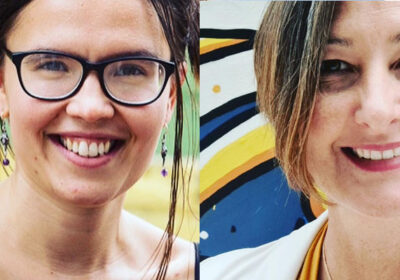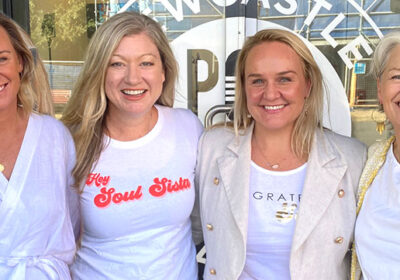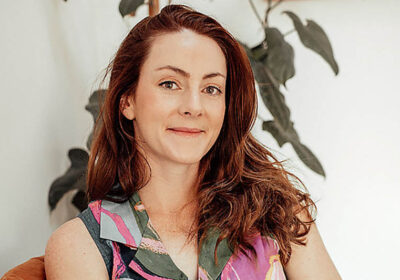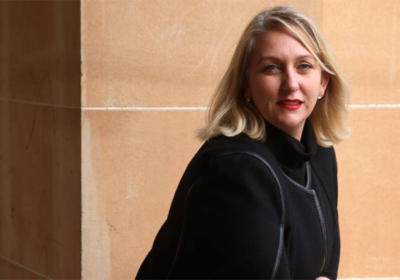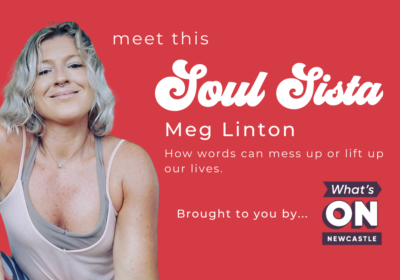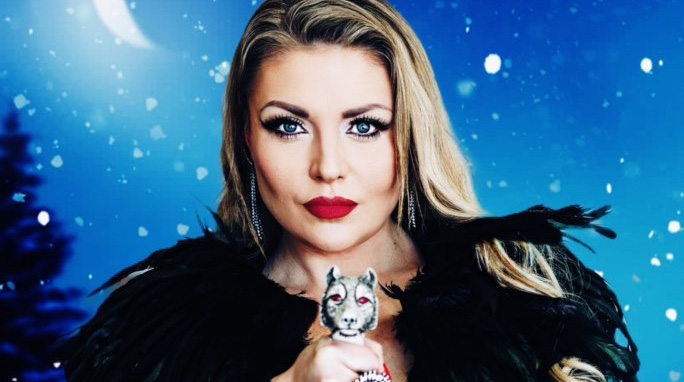
- Stats: 218 1 0
- Author: Melissa Histon
- Posted: 25/01/2021
- Category: Hey Soul Sista Podcast
Your ‘Shadow’ Self – What It Is? Can it help or harm you?
Do you ever have moments when you react or behave in a way that’s out of character for you? In this episode, special guest, Rebecca Gibson, and host, Mel Histon, explore our dark side or our shadow side – the unwanted, unacceptable parts of ourselves that we struggle to deny or repress – and when our shadow side may help or harm us.
Melissa:
Hey Soul Sistas, do you ever have moments when you react or behave in a way that’s out of character for you? You may feel jealous or bitter, competitive or angry, or maybe even have sexual thoughts about a friend’s husband. Society sends us women powerful messages to be kind, generous, patient, forgiving, brave, and moral. So what do we do when we have messy, ugly thoughts and urges that just don’t fit with those societal expectations? People, we are complex creatures driven by conflicting emotions and motives often expressed as multiple sides of ourselves. On the one hand, there’s our presentable idealized self. The one that everybody sees and is well behaved. And on the other hand, there’s the side that expresses depression and doubt, anger or selfishness and narcissism, our dark side, the unwanted and unacceptable parts of ourselves that we struggle to deny or oppress. Maybe we find it a little bit embarrassing to actually admit that we’re having those thoughts or behaviours.
Melissa:
We want to deny them. Anyway, I want to explore that because I have been reading more and more on the interwebs and social media about our shadow side. And I’m really curious about that. So today I have with me in this GDA, the fabulous Rebecca Gibson. Hey Beck.
Rebecca Gibson:
Hey Mel.
Melissa:
So for those of you who have not heard of Beck before, and she’s been a bit of a regular on Hey Soul Sista, Beck is a forward-thinking psychic medium channel plus she’s also a psychiatric nurse who has worked in maximum security jails with some of our most dangerous criminals. And so Beck, I’m thinking you have seen some totally dark shadow sides of human beings.
Rebecca Gibson:
Very much so. Yeah. The worst of humanity. Well, everyone’s seeing the worst of humanity playing up. The red head man.
Melissa:
I very, and the states yes, with all the riots and Trump and all of that going on.
Rebecca Gibson:
That’s pretty much the worst of the collective shadow in one person.
Melissa:
Yeah. And so I see you talk regularly about people’s shadow sides.
Rebecca Gibson:
Yeah. Yes I do.
Melissa:
Is that something that you’re curious about or it’s something, I suppose, as a psychic and again, having worked in maximum security jails that you have seen so much of?
Rebecca Gibson:
I have, I’ve seen the worst of shadow, but we all have shadows. And it’s really important for us to be living an authentic life where we have fulfillment and contentment and we’re living our best selves. Then we have to do what’s called shadow work and shadow alchemy. And we have to look at those aspects of self rather than squishing them down because that’s how they become shadow in the first place. It’s all those things of self that we’re just like, “Oh, I’m not dealing with that. I’m just going to squish it. All that trauma happened to me and I’m feeling this way. I’m just going to bypass it with positive thoughts and just get on with it.” And that’s doesn’t work.
Melissa:
Because like I was saying before, really we’re told from children that we’re supposed to behave a certain way and think a certain way to be good. And especially with girls to be the good girl.
Rebecca Gibson:
Yeah. Be good, be quiet. Don’t be too emotional. Don’t express yourself. Don’t be too loud. And so that will bring up a lot of feelings of not being able to express how you truly feel about things. And then you do squish things down and then it seats there dormant in you and gets re-triggered again and again, each time something happens to you and it just becomes worse. That kind of emotion, wherever that store just starts growing. Yeah.
Melissa:
And so really the shadow side of ourselves, it is those repressed feelings and emotions that are more negative?
Rebecca Gibson:
Yes. So it’s attached to our egoic thought, our personality, not our soul. And it will cause you to sabotage yourself. It will cause you to feel like a victim in circumstances. It’ll cause you to be a brat, have tantrums. It will cause you to have tantrums on a massive scale.
Melissa:
Maybe get competitive or jealous.
Rebecca Gibson:
Absolutely competitive, jealous, envy, completely shutting yourself off from everybody and not wanting to interact at all or be overly controlling, horde, greed. I imagine there’s a lot of billionaires who are holding on to their horns that probably have a lot of shadow.
Melissa:
Yeah. And so you would say everybody has shadow.
Rebecca Gibson:
Oh absolutely. You can’t not have shadow. We’re all humans. We all have an ego. We all have been brought up in certain ways where we’ve learned through fight or flight or adaption that we have to suppress the way that we’re feeling about things, not express ourselves healthily. And we’ve been propaganded to, in so many different ways throughout our entire life. We’re in our 40s. We grew up where people didn’t talk about spirituality, no one talked about soul. It was like this unheard-of thing. And if you did do something wrong with you or you were too woo-woo or you’d be called a witch.
Melissa:
So it’s interesting, you said something that just prompted a little thought in my brain. So I’m seeing a lot of as well at the moment, people talking about frequency and where you sit and in it’s like if you feel angry or if you feel sad, “Oh, that’s low frequency, low vibration. That’s really bad.” You want to be high vibration and high frequency.
Rebecca Gibson:
This is a collective shadow of the spiritual arena where people spiritually bypass things, just like don’t feel that, quickly change it around and feel these. What you do want to have higher vibrating things in the way that you alchemize your lower frequency, emotions and stuff is to raise it. But it’s not a bad thing. You can sit with these negative feelings for a while. And this is the whole point of shadow alchemy and shadow work is to sit with them, is to acknowledge them, is to pretending that they’re not there and that you can just positive affirmation your way out of things just creates more shadow.
Melissa:
It’s funny but I agree, but it seems as though, and again, I’m seeing a lot of messaging probably via social media. It’s like, no, you shouldn’t feel that way. So-
Rebecca Gibson:
That’s called spiritual bypassing and it’s extremely unhealthy and because it’s such a large growing business now in the spiritual arena, people really need to sit in with themselves about what someone’s saying, does it feel right to them? But it’s okay to feel sad. It’s okay to feel jealous. It’s okay to feel envy. It’s okay to feel bitter sometimes, but it’s not okay to pretend it’s not there. And just think that you can do something quickly just to get your way through it, but you’re not moving through it and you’re not clearing it. You’re just bypassing it. And it’s still going to be there and it will be triggered later on.
Melissa:
Yeah. So that’s the thing. If you don’t actually deal with it and acknowledge it, it will just rise later on.
Rebecca Gibson:
Yeah. I always talk about shadows like roots. So if you have a weed, you don’t want that weed anymore. You don’t want that plant anymore in your garden. If you pull it out, you’ve got to get the whole root system out. If you don’t get down into the deepest, darkest depths of the soil to pull out the whole root, it will stay there and it’ll grow again later. And that’s exactly how low-frequency negative type emotions. I say negative in terms of frequency. That’s what happens. They’ll just sit there. So say something, especially with trauma, something really horrible happens to you, and you just cannot process it right then and there. A lot of people will just, “Oh, that’s fine. She’ll be right.” That thing that we say in Australia. “No worries. You’ll be okay.” And you just try and ignore it. And so then you start doing things to distract you from it. And you start developing maladaptive behaviors to move yourself away from that crappy feeling.
Rebecca Gibson:
And then something will happen that will re-trigger it. And we see it in post-traumatic stress and stuff. It’ll be re-triggered over and over again. And so that’s why shadow work and shadow alchemy is so important to just completely get all the root system of that weed out. And then it’s not there to be triggered anymore. It’s work.
Melissa:
So our dark side, our shadow side that generally comes from events through life, childhood-
Rebecca Gibson:
No. It’s nature and nurture. So shadow is very much it’s ego, self and things that happen to the self and things that trigger feelings we don’t like. Then there’s the collective shadow where everybody’s feeling the same thing and it’s very apparent during 2020. Then there’s the biological ancestral stuff. So the stuff that’s passed down actually through your genes and then there’s the family cultural stuff like white supremacy is a really good example of family cultural collective shadow. So the most important thing is you can only control yourself. So you do the work for yourself, how you’re feeling, and you start having a look at your family cultural stuff that is shadow when you start having a look at the collective around you and who you’re getting your information from and who you choose to spend your time with and what things you try like you choose to continue.
Melissa:
Why do we need to get to know our shadow sides?
Rebecca Gibson:
Because if you don’t acknowledge those aspects of yourself, then you do develop maladaptive behaviors. So there’ll be-
Melissa:
So explain that, a maladaptive behavior.
Rebecca Gibson:
So a maladaptive behavior is having a tanty outside the Capitol Building.
Melissa:
What we’ve just seen.
Rebecca Gibson:
Yes. Maladaptive behavior are getting into so much scarcity during COVID that all of a sudden toilet paper disappeared across the world. It was like a collective shadow. And then the maladaptive behavior was, “I’m in scarcity so I need to hoard and I have no concern for everybody else around me and I put myself first.” Or emotional eating or substance abuse or addiction or overspending or any of that. You just start creating drama around your life and you start creating more negativity because you’re looking to feel good, but you’re not going within like you’re completely disconnected from your soul. And so your ego is searching for something to feel good. And so it’ll do short-term things to feel good that actually are causing long-term problems.
Melissa:
Yeah. And would you say a lot of people are not aware of that? They’re not aware of their shadow side or all that behavior?
Rebecca Gibson:
Yeah. Most people aren’t. I wasn’t. I have a look back at my life now and I’m absolutely appalled at some of the things that I’ve said and done thinking that I was in the right at the time, but I was completely ego driven. I was very disconnected from soul and I’m really glad that I acknowledged aspects of self now that I ran from a long time ago. But once you acknowledge these parts of yourself, then you can help to heal them and weed them out, remove them. And then it’s no longer a problem.
Melissa:
And so before you were talking about shadow work, so what is shadow work?
Rebecca Gibson:
There’s shadow work and then there’s like the deep performance shadow alchemy. So shadow work is to actually sit there and have a look at the aspects of yourself that you’ve been running from the stuff that you’ve been hiding in the shadows. So for example-
Melissa:
And bringing it to the light, bringing it to awareness.
Rebecca Gibson:
Yeah. You bring it to the light, you bring it to awareness and then it’s the awareness, the self-awareness that then you can create healing. Shadow alchemy is to turn it into light instead of just bringing it to the light and bring it into self-awareness is to completely alchemize it into gold and transform it into light. And so for example, we have what’s called archetypes and they’re just collective traits of personality. And there’s so many different archetypes and all of us will have like about 12 to 20 archetypes, but we all share the same four archetypes, which is victim, inner child, prostitute and saboteur.
Rebecca Gibson:
And so our inner victim is the one that thinks that we’re so hard done by, by everything that we’ve got no control over our life. Our inner child is the one that feels entitlement, feels that people need to look after them. I don’t want to do anything. That kind of thing. The orange head man is very much in a child. That alchemizes into sovereignty and that is the total understanding that you were the creation or of your reality, even you’re the… So there’s some parts of reality, obviously that you’re going to be a part of, but you get to be in control of how you handle your reality, to create your reality. A prostitute is the part of us that goes into scarcity, goes into fear, freaks out, goes and gets all the toilet paper, people please everybody. Will put everybody first before her own needs, its own needs and it alchemizes into lover.
Rebecca Gibson:
And that’s that part of ourselves. “These are my standards. This is what I expect for myself and accept of myself.” And that is the good part of you. There’s the self-loving part of you. And then there is the saboteur, which will stop you from using your work to help others, will keep you invisible, will make you hoard things and just sabotage growth. And then it alchemizes into magician. And the magician is the magic that comes out of you on the creative aspects of you that you put out into the world. And so you’re alchemizing those aspects of the shadow and you’re turning them. So the saboteur stuff, so I had a client today who completely changed her website. Everything looks amazing, but she hasn’t released it.
Rebecca Gibson:
And she hasn’t told anybody. And she’s been sitting on this gold mine for a month because she’s sabotaging herself. And so her magician is what created the website, but her saboteur is keeping it from putting it out. So we did a lot of work. What’s your saboteurs saying? Why do you feel the need to keep yourself safe by not telling everybody what your magic is? So it stops us like all the books and art and the things that we want. It’s all magic. And when you imagine like some amazing things that you’ve read if that person said there, “I can’t, can’t put this…” Like your favorite book. “I can’t put this book out. Who’s going to want to read this. This is crap. Everyone’s going to think that I’m an idiot.” That’s the shadow side.
Melissa:
Yep. So do we get rid of our shadow side? Or how do we get rid of our shadow side?
Rebecca Gibson:
We’re never going to get completely get rid of shadow side because you’re always going to have ego consciousness. But you can work on it by the self-awareness. Once you start to understand that you’re a sole being and that you do a lot of work to communicate from soul more often than from ego consciousness and you start being self-aware of all those aspects of self that you don’t like, which would normally be mirrored back to you in other people. So normally the things that really irk you about somebody else is because you’re not willing to acknowledge that part of yourself. So you’re just very irritated and want to run from it.
Melissa:
Which is funny because I’ve been told that before and I actually find myself now, if somebody is aching me, I actually kind of will go, “Oh, okay.” What’s going on with my life, if that’s annoying me, whereas that’s showing up in my life and it’s quite confronting, but it’s really good to do that.
Rebecca Gibson:
Yeah. Once you get past that confronting bit, it’s the resistance.
Melissa:
Yeah. Because you don’t want to admit it.
Rebecca Gibson:
No, you don’t want to.
Melissa:
You don’t want to admit the side. That’s why, I guess that’s what they call it, your shadow side because you don’t want to admit it.
Rebecca Gibson:
Exactly right. You don’t want to admit it. You don’t want to see those aspects of self that you see in others that you don’t like, but once you’re aware of it, then you know, “Okay, this is part of me. I can heal it. I can communicate it. I can apologize for it. I can make amends for it should the need be.” And then you have to actually purposely start doing the shadow alchemy and learn how to do it and be coached through it.
Melissa:
Yeah. I found an article online and it was seven ways to face your shadow.
Rebecca Gibson:
What does it say?
Melissa:
Well, the first one and I really liked it. It said to banish the shame and actually just be self-accepting because like, yeah, okay, it’s hard to admit that you’re having these thoughts.
Rebecca Gibson:
Shame is probably the barrier of the shadow or the first part of shadow, which is like, “Oh, come down here guilt, come down hear narcissist, come down hide down here in the shadows when nobody can see you.” Shame, she’s kind of like the leader, like come down here because we don’t like feeling a shame. Shame is really easily triggered in us. It feels gross. Shame feels horrible.
Melissa:
It does. Absolutely.
Rebecca Gibson:
And it’s so easily triggered because there’s so many things that have occurred throughout your entire life that will make you feel shame.
Melissa:
I think it’s well through social media, we see so many people put our best face forward and I do it. Everybody does it. We don’t want to go, “Oh, by way I did this really crap thing.” Because you’re crucified for it.
Rebecca Gibson:
That’s right.
Melissa:
People are so judgy and there’s shame around that.
Rebecca Gibson:
That’s right. And people will shame you into it but then won’t allow you to evolve or fix it or mature from it, this cancel culture kind of like, “You’ve done this. So we don’t want anything to do with you.” But they’re not willing to let that person grow and change. Like everybody changes. I’ve seen inmates leave after having years of recidivism, they’ve been in and out of jail. They’ve found something. They’ve never been back to jail again. They’re like a completely different person, but people will look at their lives and like, “Well, you went to jail for such and such means that you’re a bad person. And I don’t want anything to do with you.” I’m like, Why are we expecting these people in society to correct their behavior in correctional centers and improve on their lives and make themselves better if people are just going to want to shame them for something that happened 10 or 20 years ago?
Melissa:
And I was just having this conversation with somebody a couple of weekends ago, and we’re like, everybody makes mistakes.
Rebecca Gibson:
Everyone.
Melissa:
Everybody stuff’s off.
Rebecca Gibson:
There’s not one single person in the entire existence of humanity that has not made a minimum of one mistake.
Melissa:
Yeah. Actually I remember chatting to you. It was eight months ago now. And I was really ashamed of something that I’d done and I told you about it. And you were like, “Really? You’re worried about that? Oh, what are you even worried about that for?” And I felt such release because I had felt such personal shame and was really judging myself.
Rebecca Gibson:
Exactly.
Melissa:
And you were just like, “Oh, that’s not even a thing. What are you even worried about that for?” And I was like, “Oh, I wish I’d shared that earlier.”
Rebecca Gibson:
We’re quiet about a lot of things that we feel shame about and it doesn’t give us the opportunity to grow because we’re not willing to have conversations about things because we’re so scared that people are going to think that I’m a horrible, and then they’re going to want to wipe me off the face of the planet. And that’ll be the end of my social media. That’ll be the end of my business. That’ll be the end of my friendships. If I say this one thing about how I’m feeling, I’m going to get crucified for it. And then all of a sudden my life will fall apart. So I’m just going to put it back down in my shadow and just pretend it’s not there and do something in secret to make myself feel better.
Melissa:
Yeah, absolutely. Forgiveness.
Rebecca Gibson:
Exactly. Forgiveness and self-compassion it’s so important. And then the more we forgive ourselves and the more we’re self-compassionate with ourselves, the easier it is for us to be like that with others. And it’s so important. If we’re all going to get through this particular global time of world’s shadow on display everywhere. If we’re not willing to be forgiving and compassionate of ourselves and others, we’re not going to get through this the way that we should be.
Melissa:
Well, interestingly, that’s another one of the things on the list of some ways to face your shadow is to meditate with a focus of self-compassion and acceptance for your own humanness.
Rebecca Gibson:
Oh, it’s so important because the people who aren’t willing to have compassion for themselves, then pretend that there’s nothing wrong with them. And then they’re the ones that end up creating a ripple effect of problems amongst them. They’re so disconnected from self that they kind of go on the other side instead of diminishing themselves, they make themselves bigger. Their energy starts consuming, controlling everything around them and they become megalomaniacs in office.
Melissa:
So it also says here to write in a journal, to laugh at yourself.
Rebecca Gibson:
Yeah. Writing in a journal is a really good one. I’m not one for journal writing, but it’s really good for people who aren’t willing to say it out loud yet to another person. Just acknowledging it by writing it.
Melissa:
Is that why people journal because they want to share their deeper secrets that they [crosstalk 00:21:46].
Rebecca Gibson:
People journal for different reasons. I personally, my hand gets sore. I start getting bored. But it’s a good way for people who aren’t wanting to talk about it with someone else then write it down. No one has to see it, burn it, burn it after if you don’t want anyone to see it.
Melissa:
I write a lot of things and burn it. Don’t you? It says here to think of good qualities and accept the possibility that the opposite may also be true of you and that’s okay.
Rebecca Gibson:
Exactly. When you do the work, the shadow work and the shadow alchemy, then you can find the opposite. But if you’re not going to be self-aware to acknowledge that part of yourself in the first place, then you can’t find the opposite of it. And you don’t heal your relationships with people that share and mirror back those attributes to you. So I have a very, well, it was very disconnected, not good relationship with my mother. And I started having coaching with Crystal Andrus Morissette who wrote this book called The Emotional Edge, which doesn’t actually mention that shadow work, but it’s very much shadow work around your child and where you are now as an adult and parental stuff. And we were talking and she says, “What are the aspects about your mom that you can’t stand in your mom?” I say, I’m like, “It’s her narcissistic nature. It’s this and all this form of narcissistic abuse growing up.”
Rebecca Gibson:
And she said, “Well, then that’s where you narcissistic.” And I was so offended. I was like, “What do you mean I’m narcissistic. How could you say that?” And she says, look how triggered you’re getting. And I’m like, “Because how, why would you say that to me?” And she’s just, “Breath through it, Rebecca and just see in it and acknowledge it.” And then I would normally do all the parts where I had been narcissistic. And I had very much been like her. And I’m like, “Oh my Lord, this is gold.” It was such like a relief. And she’s making me scream. “I’m a narcissistic warrior queen.” And I was saying it, I felt better and better the more aware I became it. And then I could have a look at the traits that I didn’t like about myself and heal them.
Melissa:
Can our shadow side actually help us?
Rebecca Gibson:
That’s interesting. I’m not sure if it can, because I don’t think that it can, we don’t want to… Because shadow is very much rooted in fear. And unless fear kicks in as a biological fight or flight response to keep you safe, then fear is basically diminishing you at your best. It’s keeping you away from your light. It’s keeping away from your brightness and your greatness. And so, no, I would say no, some people might say yes, but I would say no. I don’t think it would be helpful.
Melissa:
So when you were in the jail, what’s the worst shadow you’ve seen? The darkest of a person or humanity.
Rebecca Gibson:
Okay. I think I’ve mentioned this before. And I have spoken to several serial killers, countless of murderers, thousands of pedophiles, people that you… They all had souls. I could see everyone’s soul. This one person who would come in from my [inaudible 00:25:09] staff. We all knew that he had committed murder and the court system in technicality, he couldn’t be charged with it. He was black, there was nothing there. I’ve been in maximum security. I was manager down at Long Bay for a while. I’ve really seen some, like sitting in my office opposite me. They’ve all had souls, even the serial killers, but this one particular person, he was just, he was black. Remember I told you the story about, I got a referral to see him. And I really, really did not want to see him because I just didn’t like him in my space at all.
Rebecca Gibson:
And I had to see him. And I tried to hold it off for as much as I could. And I couldn’t. It was the first time that I’d use my spirituality at work, because I tried to shut that side of myself out. And I was sitting in my office. I’m like, “Angels, if you’re there and you exist, can a million of you fill my office? Can you keep me safe?” He just made me feel really unwell. I don’t want him in here. Can this go smoothly? And I asked the officer to go and get him. And I could hear him walking up the corridor. And I was becoming so tense. He went to walk into my office. So he was standing on linoleum in the corridor and carpet in my office. And he went to step his foot onto the carpet. And he couldn’t. And he went to look at me and he couldn’t look at me.
Rebecca Gibson:
And I’m like, “Are you coming in?” And he went to do it again. And he couldn’t get his foot in the office. And he said, he wouldn’t look at me. He turned his head to the side and he said, “There’s been a mistake.” And I said, “I’ve got a referral. Here’s your name, is this your name?” And he goes, “I made a mistake. I don’t want to come here.” And he asked the officer to take him back and I was like, “Yes, thank you angels.”
Melissa:
The angels won. The angels were there.
Rebecca Gibson:
“Thank you angels. I did not want him near me.”
Melissa:
So there was something there or not there?
Rebecca Gibson:
There was something not there that I can’t explain it because I’ve never come across anybody but him that didn’t have a soul. Even people who’ve done heinous horrible things to multiple, multiple people. They’re still reachable. They’re still like that soul like the highest self in there, but him, no, I can’t explain his energy. It was something that I hope I’d never run into again. I hope so too.
Melissa:
So our shadow self can harm us if we don’t do the work.
Rebecca Gibson:
Oh, absolutely. It can create illness. People end up with illness and stuff. People end up with addiction. People end up with mental health problems like anxiety. One of my coach is Lorna Johnson. And I really encourage people to look up for her stuff from her website is Luxe Godhead, L-U-X-E Godhead. And she created this tool for shadow alchemy. And she’s been the best that I’ve seen talk about it and talk about where she’s come from and how she discovered shadow alchemy, where she’d been diagnosed with a couple of different mental health illnesses and been put on medication. She was bordering on being suicidal and then sort of had this epiphany around shadow alchemy and created a seven-figure business in 10 months. And now she teaches it. And I highly recommend people look at her stuff because it can completely change your life from rock bottom to your greatest self.
Melissa:
Okay.
Melissa:
Beck.
Rebecca Gibson:
Yes.
Melissa:
Tell me about your shadow side.
Rebecca Gibson:
Oh, my goodness. Well, I told you the narcissistic part, if I’m feeling drowned out by the collective of fear, I retreat. I stop talking to people. I’m a really crap friend. I don’t socialize. I keep to myself and I really diminish myself, which doesn’t help me showing up for the people that need me to show up for them. I kind of isolate myself and become too insular. There’s nothing wrong with isolating, but I do it to the point where sometimes I’m like, “Oh, I probably should leave the house. I haven’t walked out the front door for two weeks.” Just things like that. It’s not healthy. It’s not healthy for my auto immune stuff. It’s not healthy for engaging with people and building relationships and stuff.
Rebecca Gibson:
So that’s something that I’m trying to work on at the moment. I get so shy around other people that people think that I’m really arrogant and aloof and I just kind of freeze. I can remember at one of your events a lady came up to me and she goes, “Oh, you’re Rebecca Gibson. I’ve listened to all your podcasts. And I’ve been on your website and I’ve been watching this.” And I froze. I must have come across as so rude. I just froze. I just had this total anxiety and freaked out.
Rebecca Gibson:
And good friend Denise, who gets that all the time, came up and she goes, she just whispers, “Breathe, say, it’s so nice to see you.” I took a breath. “It’s so nice to see you. I could imagine if that was me and if I had gone up to someone that I was excited to see, because I appreciated their work and that’s how they reacted. I would have taken it personally, which is part of shadow. But I didn’t want her to think it had anything to do with her. It was absolute, I wanted to go running out the door. Denise was like, “Just go to the bathroom and breathe again.” I’m like breathing. Yeah. It’s different for everyone. I’ve done a lot of shadow alchemy. So now [inaudible 00:30:32] is like, some people think that, “Well, that’s not much.” But.
Melissa:
Yeah. And interestingly earlier today I was in here recording another podcast with Tracy Lynch and she was talking about EMDR-
Rebecca Gibson:
Oh yeah.
Melissa:
… Therapy. She’s a counselor. So that’s one of the therapies that she uses. And I was sitting there while she was talking and creating a list in my head of all, probably all my little shadow, I spread things and issues that I’m like, okay, I maybe need to go and not that I need to, but I’d like to go and address those and go try out that therapy. So I’m guessing that’s something as well, like going and having kinesiology or EMDR therapy or counseling or something. But I suppose the biggest thing from my understanding is actually having self-awareness.
Rebecca Gibson:
It’s so important.
Melissa:
To acknowledge and look within and go, hang on, I can say I’m doing that. I’m feeling this way.
Rebecca Gibson:
It’s so important. Especially around the shame and the guilt. Because that will affect your life. The more shame that you decide to carry on with you will impact you in some way. Be it physically, emotionally within your environment. Brené Brown does some amazing stuff around shame. I highly recommend all of her books. Yeah. She’s done a lot of studies PhD stuff.
Melissa:
Yeah. So there you go. I mean, we’ve talked about seven ways that you can address or with your shadow, but again, you could actually, if you think that shadow is crippling or having a really negative effect on your life and relationships, you could also, you can do the alchemy, but you could also go and have some counseling or some therapy.
Rebecca Gibson:
Hopefully, hopefully a lot of therapists be named psychiatry or psychology will end up integrating shadow work and shadow alchemy into what they do. And yeah. Hopefully because we all benefit from it. And the more we do individually, the greater it is for the collective.
Melissa:
Yeah. And so do you do shadow work with people through-
Rebecca Gibson:
Absolutely.
Melissa:
… Your business?
Rebecca Gibson:
Yeah. Yeah. I’m really big on it now. I actually had a client today and had a big channel for something around her business that channeled a bunch of stuff around shadow alchemy. And I’m like oh, there’s a course sitting there and just parked back to the side I’m like oh I’m going to do this course now. Because I love it. It’s essential. Yeah.
Melissa:
So Soul Sistas, if you’re listening, if you’re still listening to this episode, maybe take the time to not give into any shame or guilt that arises when you start to have those negative thoughts or you might see yourself behave in a way that it’s probably not in alignment with your soul or who you are or what you stand for. But also think about it as you know what, this is just a bit of my shadow side and I can work with that. I can heal that.
Rebecca Gibson:
Exactly. Don’t squish it down and don’t bypass it.
Melissa:
Don’t squish it. Don’t bypass it. Look at it, examine it, hold it.
Rebecca Gibson:
Yeah. And be kind to be kind to yourself.
Melissa:
And be kind to be kind to yourself and heal it.
Rebecca Gibson:
Yeah.
Melissa:
Well, thank you so much Beck.
Rebecca Gibson:
Thank you for having me.
Melissa:
Thanks again for coming in and sharing your-
Rebecca Gibson:
Thank you.
Melissa:
… Beautiful wisdoms.
Rebecca Gibson:
I love doing these things.
Melissa:
So do I, who doesn’t love a chat in a podcast studio. Thanks. So now Beck if people want to find out about you, how do they do that?
Rebecca Gibson:
My website is www.rebeccagibson, the old-fashioned R-E-B-E-C-C-A gibson.com.au. Or you can find me on Instagram and Facebook, Rebecca Gibson psychic medium. Yeah. Spiritual strategist and psychic medium.
Melissa:
Fabulous. Thank you so much soul sista.
Rebecca Gibson:
You’re welcome. Thank you.
+ Follow Mel at @melissahiston
+ Follow Hey Soul Sista at @sistacode
+ Subscribe to make sure you hear the next instalment of Hey Soul Sista Podcast
+ www.thesistacode.com
+ melissa@thesistacode.com
+ Produced by Newcastle Podcast Station


